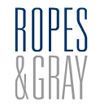|
|
|
Survivors await UN court's Bosnian war ruling
International |
2007/02/24 01:28
|
Survivors and relatives of victims of the Srebrinica massacre are on their way to The Hague for a ruling on a demand to hold Serbia accountable for mass killings during the Bosnian War. The case, brought by Bosnia, has been described as one of the most significant in the International Court's history. "We've been waiting a long time, and now we want to go there and witness justice for ourselves," said one woman boarding a bus in Sarajevo for The Hague. "We have been deceived many times before and now we want justice, finally," another said.
The UN Court in The Hague opened the case last year, 13 years after Bosnia first sued what remained of the Yugoslav state from which it broke away in 1992. At least 100,000 died in the ensuing conflict. Bosnia says modern-day Serbia should pay billions of euros in compensation for the genocide and other war crimes committed against Bosnian Muslims during the fighting.
The most notorious episode came at Srebrinica when around 8,000 Bosnian men were massacred. Serbia's lawyers have argued the case between two multi-ethnic states does not reflect a war fought along ethnic lines. The ruling is expected on Monday. |
|
|
|
|
|
|
N.Y. home court in arena suit - judge
Law Center |
2007/02/24 01:26
|
| A lawsuit against the controversial Atlantic Yards basketball arena should be bounced out of federal court, a judge ruled yesterday. The suit challenging the use of eminent domain to make way for Forest City Ratner's $4.2 billion development in Brooklyn should be heard in a state court, Magistrate Robert Levy decided. "This action represents important public policy concerns and is essentially local in nature," Levy wrote. "The state's interest in adjudicating this case in its own forum outweighs the federal interest in retaining jurisdiction." The plaintiffs' lawyers now have two weeks to file objections to keep the case in federal court. The case was brought by 13 property owners facing eviction. "We're disappointed found a basis to recommend dismissal," said Candace Carponter, a member of the opposition group Develop Don't Destroy Brooklyn. The project calls for an arena for the NBA's Nets and 16 towers with residential and commercial space. Construction began Tuesday. While opponents fear the project will create a traffic nightmare and ruin the neighborhood's character, supporters say the project will be a boon for Brooklyn and the city. |
|
|
|
|
|
|
Ropes & Gray’s Boston office to relocate in 2010
Law Firm News |
2007/02/23 11:29
|
 “As was the case with our recent relocation of our New York office in Midtown Manhattan, we’re looking forward to moving to a dynamic new space that can accommodate our future growth,” said Brad Malt, chairman of Ropes & Gray. “Like Midtown, Back Bay offers an appealing mix of central location, cultural and recreational amenities, and convenience for our clients, attorneys and staff alike. International Place is a great building and has been a wonderful location for us since 1989, but we are excited by this development.”
The Prudential Center is a 3.2 million square foot urban center, comprised of 2.6 million square feet of office space and 620,000 square feet of retail space. The complex provides direct access to the Massachusetts Turnpike and on-site access to the MBTA Green Line, as well as the largest parking garage in New England, with space for 3,660 cars. The 52-story Prudential Tower features spectacular views of Boston, Cambridge and the surrounding areas. In 2006, Prudential Center was the recipient of the Urban Land Institute Award for Excellence as best mixed-use project on an international basis. Additionally, the Prudential Tower was the recipient of the 2006 BOMA Best Building of the Year Award. |
|
|
|
|
|
|
CA heightens push to ease prison crowding
Politics |
2007/02/23 11:15
|
| Gov. Arnold Schwarzenegger urged legislative leaders yesterday to act swiftly to ease prison overcrowding, saying he would consider early release of inmates who are “old, feeble and sick” and “pose no threat to the public.” The governor said that if lawmakers do not solve the long-standing overcrowding problem, the federal courts may order the release of criminals and the construction of new prisons, taking money that would otherwise go to education and health care. “This is, of course, unacceptable. But we can make certain this doesn't happen if we act now,” Schwarzenegger said at a news conference after meeting earlier with legislative leaders. He said he is confident that a Superior Court decision Tuesday blocking an emergency move to transfer inmates to prisons in other states will be overturned on appeal.
The out-of-state transfers have been the administration's only plan to quickly ease overcrowding. About 360 prisoners have been transferred, far short of the goal of 5,000. AdvertisementIn response to a question, Schwarzenegger said the new urgency comes from an order last week by U.S. District Judge Thelton Henderson in San Francisco giving the state 90 days to spell out how the inmate population will be reduced in each of the next two years. “I think by having this order it helps us to speed up the process and really start negotiating,” Schwarzenegger said. California has more than 170,000 prisoners jammed into prisons designed for 100,000. Inmates are packed into gyms, classrooms and hallways – sometimes in beds stacked three high. Officials are concerned about potential riots. |
|
|
|
|
|
|
Second Ohio Man Sentenced for Hate Crimes
Court Watch |
2007/02/23 11:14
|
| Joseph Kuzlik, of Cleveland, Ohio, was sentenced today to 27 months in federal prison and three years of supervised release for committing a racially motivated crime which violated the federally protected civil rights of a Cleveland family. Kuzlik was also ordered to pay restitution of $23,000 to the U.S. Environmental Protection Agency (EPA), $767 to the Ohio EPA, and additional sums to the individual victims who suffered financial losses as a result of the offenses. At the sentencing hearing, Judge Patricia Anne Gaughan said, “The abusive and serious nature of this offense is obvious to anyone with a modicum of decency and morality. I cannot imagine the terror that was inflicted on these victims. A message must be sent loud and clear that this behavior will not be tolerated and will result in a punishment at the high end of the guideline range.” On Nov. 27, 2006, Kuzlik pleaded guilty to conspiring to interfere with the federally protected housing rights of an interracial family because of their race, and for making false statements to federal investigators. Another Cleveland resident, David Fredericy, was sentenced on Jan. 17, 2007, to serve 33 months in prison for his role in the crime. Fredericy and Kuzlik engaged in a series of acts intended to threaten and intimidate interracial residents in their neighborhood, including placing toxic mercury on the porch of a family with children for the purpose of intimidating them because one of the parents was African-American. As part of his guilty plea, Kuzlik admitted that he and Fredericy were attempting to intimidate the family and drive them from the neighborhood. In order to keep their unlawful actions secret, both Fredericy and Kuzlik lied to federal investigators from the EPA, the federal agency initially charged with cleaning up the mercury and investigating the incident. “Bias-motivated acts of violence are despicable and intolerable, especially when they involve innocent children,” said Wan J. Kim, Assistant Attorney General for the Civil Rights Division. “The Justice Department is committed to the vigorous prosecution of these types of federal hate crimes.” Gregory White, U.S. Attorney for the Northern District of Ohio said, “Today’s sentence is a fitting conclusion to a joint effort by the FBI, the U.S. EPA, the Ohio EPA, and the Cleveland Police Department, and demonstrates the commitment of both state and federal law enforcement authorities to protecting every citizen’s basic right to live in and enjoy his or her own home without fear of racial intimidation.” The case was prosecuted by Assistant U.S. Attorney Ann C. Rowland and Trial Attorney Kristy L. Parker of the Civil Rights Division. |
|
|
|
|
|
|
State Farm seeks to bar judge
Insurance |
2007/02/23 11:12
|
State Farm is asking a federal judge to not be one to certify a class action lawsuit filed against the insurer over Hurricane Katrina damages. State Farm Insurance filed papers on Thursday to have US District Court Judge L.T. Senter, Jr. recused from certifying a class action lawsuit against the company over Hurricane Katrina damages.
The insurer questioned Senter's impartiality as fellow judge John Roper and Terri Brown, a federal court clerk, could be plaintiffs in the class action suit. Senter has already disqualified himself from hearing individual lawsuits involving the two co-workers. Senter, who has not yet ruled on the insurer's recusal motion, is scheduled to hear arguments concerning the State Farm class action bid on Wednesday. In January, a Mississippi jury held State Farm liable for $2.5 million dollars in punitive damages for rejecting a Katrina claim that State Farm said was due to wind before the storm rather than the hurricane itself. In the same month, State Farm agreed to settle with hundreds of Mississipi homeowners, but Senter rejected the proposed settlement. |
|
|
|
|
|
|
Class action or a representative action is a form of lawsuit in which a large group of people collectively bring a claim to court and/or in which a class of defendants is being sued. This form of collective lawsuit originated in the United States and is still predominantly a U.S. phenomenon, at least the U.S. variant of it. In the United States federal courts, class actions are governed by Federal Rules of Civil Procedure Rule. Since 1938, many states have adopted rules similar to the FRCP. However, some states like California have civil procedure systems which deviate significantly from the federal rules; the California Codes provide for four separate types of class actions. As a result, there are two separate treatises devoted solely to the complex topic of California class actions. Some states, such as Virginia, do not provide for any class actions, while others, such as New York, limit the types of claims that may be brought as class actions. They can construct your law firm a brand new website and help you redesign your existing law firm site to secure your place in the internet. |
Law Firm Directory
|
|









